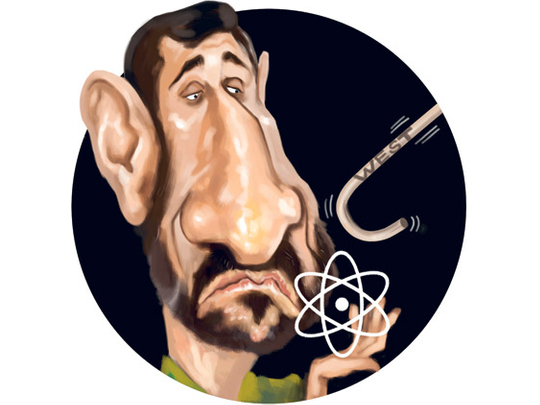
As expected, negotiations between Iran and six world powers over its nuclear programme ended without a breakthrough. The only thing the two sides agreed upon was to meet again in Turkey in January, although the topic of discussions remains vague.
Iran went to the meeting with lots of recriminations over the bomb attacks against two of its nuclear physicists last week, which it blames on western countries, notably the United States. One of the physicists who survived the attack is actually on a UN blacklist of individuals targeted for sanctions.
The bombings came in time for Iran to go to the Geneva meeting with a full arsenal to let off at its western partners and score psychological points. The other side listened politely, condemning the attacks, but their chief demand from Tehran to end uranium enrichment remains unchanged.
The Islamic republic too, as expected, stuck to its position, insisting that its "nuclear rights" were up for discussion. This is as far as the two-day meeting went and now all hopes, if any, hinge on the next round of talks in Istanbul in late January.
Although both sides in the nuclear standoff appear to be digging in their heels, there are signs that each may be willing to compromise to some extent. Iran, badly stung by four rounds of sanctions, is looking for a face-saving way out, short of full surrender.
This entails winning the right to continue enrichment, albeit at a low level. Defending Iran's "nuclear rights" has been a linchpin of Mahmoud Ahmadinejad's presidency and he desperately needs this win to show to his critics that his intransigence hasn't been in vain.
The previous moderate president, Mohammad Khatami, was far more conciliatory on the nuclear issue and that cost him the support of Supreme Leader Ayatollah Ali Khamenei and the Revolutionary Guards.
There are actually signs that the US and its allies might be willing to give some concessions to Iran in order to give diplomacy a chance to succeed. Some reports indicate that at least some among the Group of 5+1 are considering allowing Tehran low-level enrichment and the issue may well be the main topic of discussions at the next round of talks.
Such an impression has been reinforced by Tehran's cautiously positive attitude toward the Geneva talks. "Now that the powers have come to us, we have no problem talking with them, provided that they recognise the nuclear rights of our nation," Ahmadinejad said on Wednesday. His chief nuclear negotiator Saeed Jalili echoed the optimism, saying western countries had "substantially changed" their position.
To build up to a strong presence at the negotiation table, Iran has been using a mixture of bluffs, rhetoric and playacting, all aimed at showing that the Islamic republic means business.
Just a day before the Geneva conference, Tehran announced that it had become self-sufficient over the whole enrichment process and it could now easily bypass the UN boycott.
The acts of terror against Iranian scientists too have provided the Islamic republic with the opportunity to paint itself as the innocent party in the nuclear conflict with the West.
But it remains to be seen how far the powers are willing to bend to cater to Ahmadinejad and whether they are ready to offer him the clear win he needs to rebuild his image at home, which suffered badly after last year's disputed presidential election.
Despite a relentless crackdown on free speech, the Iranian public is growing ever more vocal in questioning the president's tough stance on the nuclear issue, which has served to hurt the Iranian economy. Western experts estimate that Iran has already lost billions of dollars due to the UN economic embargo and the figure is likely to rise exponentially.
The sanctions could not have come at a worse time for Ahmadinejad as he seeks to lift heavy government subsidies and streamline the economy, plagued by sanctions, mismanagement political rifts. Plans to remove subsidies have been repeatedly delayed for fear that it would spark a new wave of unrest similar to the one last year after the presidential election.
Western countries may hope that the dismal situation in Iran will eventually lead its leaders to compromise on enrichment of uranium. But, up until now Ahmadinejad has felt no real pressure at home to be forced to give in to UN demands, as he enjoys full support from both the supreme leader and the Revolutionary Guards that control the country.
The president repeatedly boasts that his country is equipped to withstand any outside pressure, even military attack. But his claim does not quite match up with the reality on the ground. Popular dissent suppressed for the moment is alive and smouldering, and inflation and unemployment have soared to new heights.
So it is a matter of time before Iranians feel they have had enough. But this might take far longer than the time the world has to deal with the nuclear problem before Iran crosses the point of no-return.
For now, all the US and its allies can do is tighten the economic noose and hope for the best. With military action all but ruled out for now, time is of real essence. The question is who can wait and resist longer under pressure.
Mehrdad Balali is a journalist and writer living in California. His novel Houri was recently published in New York.










